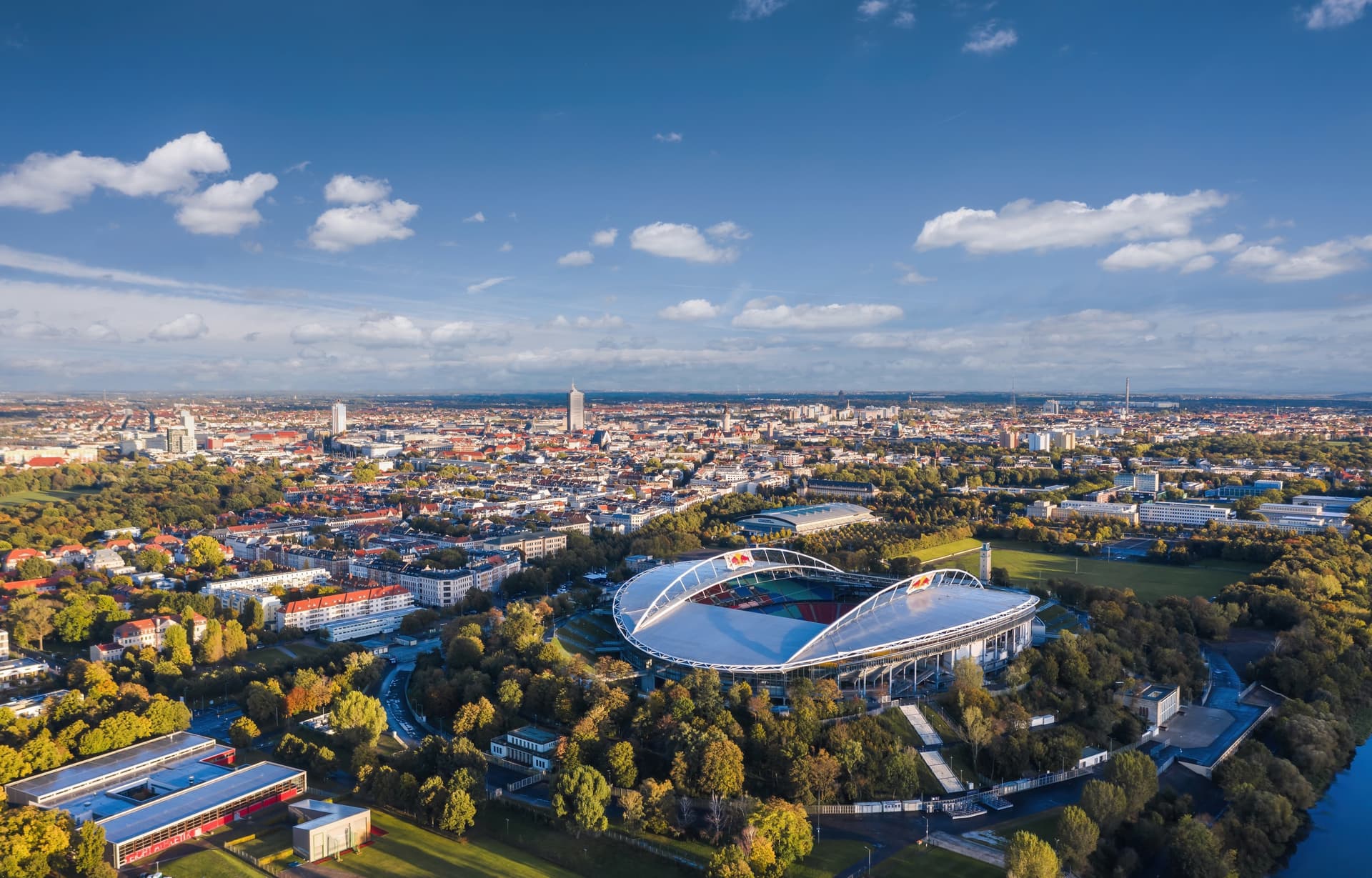Leipzig under the magnifying glass: market value development and opportunities for property buyers

04.
February 2025
With its charming historic buildings, vibrant districts, and a flourishing creative scene, the city of Leipzig is attracting more and more people. But Leipzig is more than just a hotspot for culture lovers and emerging startups. The city’s real estate prices tell a success story of their own, one that can hold its own compared to Germany’s big players—Munich, Frankfurt, and Stuttgart. Why Leipzig is currently a paradise for property buyers and how it competes in the market is shown by the latest figures, which we examine in more detail in this blog post based on a PropRate data analysis.
Leipzig in Price Comparison: Where Dreams Are Still Affordable
Anyone looking at property prices in Germany’s major cities will quickly realize: Leipzig is a place where the dream of homeownership does not immediately shatter due to financial constraints. In the first quarter, the average price per square meter was €3,272.91, according to PropRate—and even in the third quarter, at €3,286.94, Leipzig remains affordable and stable.
A look at other cities shows how remarkable this price level is: In Munich, the undisputed leader, buyers pay around three times as much, with a price of €9,580.65 per square meter in Q3 2024. Hamburg and Frankfurt also belong to a different league, with prices of €7,127.40 and €6,021.30, respectively.
In contrast, Leipzig is extremely down-to-earth. Its price level stands for affordable housing in a city that is not only growing but thriving. While space is scarce in Munich and prices are dizzyingly high, Leipzig offers room for families, young professionals, and investors alike.
Act Quickly or Miss Out
This motto applies equally to Munich, Frankfurt, and Leipzig. The Leipzig real estate market is currently the most dynamic among the major cities. With an average listing time of just 26 days in the third quarter, Leipzig is the fastest market, reflecting its high demand and growing desirability.
In comparison, properties in Frankfurt remain on the market for an average of 28 days, while in Munich, listings last around 31.5 days before finding a buyer. Anyone interested in Leipzig should act quickly, as competition is fierce. While there is also plenty of market activity in Frankfurt and Munich, buyers there have a bit more time before the best properties are gone. Leipzig, however, is the fastest and most exciting market—anyone who hesitates could miss out.
The Competition Never Sleeps: Leipzig in Comparison
Of course, it’s worth looking beyond pure numbers: Cities like Stuttgart or Düsseldorf attract with strong economies and high quality of life. This is also reflected in salaries. While the average annual income in Stuttgart is €54,500 and in Düsseldorf €50,750, it amounts (news-kununu.com) to €41,123 (www.wmn.de) in Leipzig.
However, considering that in Q3 2024, the average price per square meter in Stuttgart was €5,070.55 and in Düsseldorf €4,878.87, and that both cities have higher living costs, Leipzig offers a better price-performance ratio. This is also an important factor for investors, as the number of people who can afford a good rental apartment in Leipzig is likely to be comparatively higher.
Why Leipzig? A City with a Future
What makes Leipzig special is not just its real estate market. It’s the atmosphere of a city that is constantly reinventing itself. Here, history meets modernity, and new ideas grow on old foundations. The short distances, green surroundings, and increasing number of companies make Leipzig attractive not only for buyers but also for renters.
And while Munich, Hamburg, and Frankfurt impress with their prestige, Leipzig is the city for people who seek more than just status—a home that remains affordable while offering all the advantages of a rising metropolis.
Leipzig – A City with Convincing Potential
Leipzig is not just an alternative to Germany’s high-priced metropolitan areas—it is a city that proves affordable housing in a major city is still possible. With affordable prices, a dynamic market, and a quality of life that can compete with Germany’s top-tier cities, Leipzig remains a top address for buyers and investors.
Anyone looking for a smart investment should keep Leipzig on their radar. Because Leipzig is more than just a good choice—it is a future-proof decision.